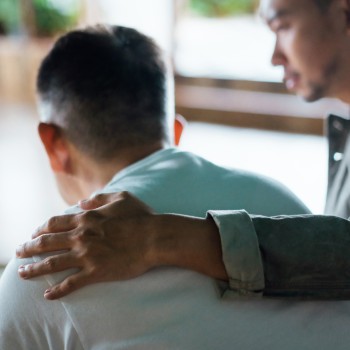Last updated on
Toxic drugs are the leading cause of death for people ages 19 to 39 in BC and the second leading cause of death in the province overall. These numbers are devastating and people from all walks of life are impacted. As BC continues to face this public health emergency, it is important to consider ways to stay safer if you use drugs.
Toxic drugs are circulating
If you or someone you know uses drugs, it’s more important than ever to know the ways to stay safer.
Download the Lifeguard App
The Lifeguard app can connect you to emergency responders automatically if you become unresponsive. Download for free through the Apple App Store and Google Play Store.
Get a naloxone kit
Anyone can learn to use naloxone to reverse an overdose. Pick up a free naloxone kit at any of the hundreds of sites in BC. Find a site near you and always carry a kit with you. Take free naloxone training online.
Get your drugs tested and receive drug alerts
Drug checking can provide life-saving information about what’s really in your drugs. Mixing substances is dangerous, but if you don’t know what you’re taking, it can be hard to avoid. Most supervised consumption sites also offer drug checking—look for one near you. Text the word JOIN to 253787 to get drug alerts in your region.
Know the signs of an overdose and how to respond
If someone is not moving or hard to wake up; breathing slowly or not at all; has blue lips and nails; is making choking, gurgling or snoring sounds; or has cold or clammy skin and tiny pupils, they could be experiencing an overdose.
- Call 9-1-1 immediately if you think someone is experiencing an overdose.
- Learn more about how to identify and response to an overdose.
Know your rights
When you help someone having an overdose you have legal protection. Learn more about the Good Samaritan Drug Overdose Act.
Don't use alone! Find an overdose prevention site
Using drugs alone increases the risk of experiencing a fatal overdose. Overdose prevention sites can provide a space to use more safely. Find a site near you or let someone know if you’re going to use so they can check on you.
Find help
- Call 8-1-1 for non-emergency health information
- Call the Opioid Treatment Access Line at 1-833-804-8111 for same-day care for opioid addiction.
- Find Opioid Agonist Treatment Clinics that are accepting new patients. If you're enrolled in BC’s Medical Services Plan, PharmaCare covers the cost of most OAT treatment. Learn more about PharmaCare coverage.
- Find services near you.
Together we can help save lives – share these tips with your family and friends.
These actions could help save your life or the life of someone you care about.
Resources
Showing 5 Resources
Lifeguard App
Provides a free phone app that brings emergency responders to people who may be having an overdose on drugs while alone. Provided in partnership with regional health authorities and Lifeguard Digital Health.
The app is activated by the user before they take their dose. If the user doesn't hit a button after a set amount of time, a text-to-voice call will go to 9-1-1, alerting emergency medical dispatchers of a possible overdose.
Drug Checking Sites (BCCSU)
The drug supply in B.C. is extremely toxic. Use free drug checking services at supervised consumption and overdose prevention sites.
BC Take Home Naloxone Program
Provides an online listing of Take Home Naloxone sites in BC. Naloxone kits are available, at no cost, for people who use opioids and people who are likely to witness and respond to an overdose. Toward the Heart also provides naloxone and harm reduction information and resources.
Naloxone is a medication that reverses the effects of an overdose from opioids such as heroin, methadone, fentanyl, and morphine. See website to locate a Take Home Naloxone site near you.
Overdose Prevention Sites Listings (Toward the Heart)
Locations where people can safely use drugs under supervision of staff trained in emergency response. Services are free.
Toxic Drug and Health Alerts
Provides a free, real-time text messaging service for anyone to receive toxic drug alerts or share information about toxic drugs in their community. This service is anonymous. People can get other information by text message, like where to find naloxone or how to get drugs tested.
Provided in partnership with the BC Health Authorities and community partners. Text the word JOIN to 253787 to get drug alerts in your region.
